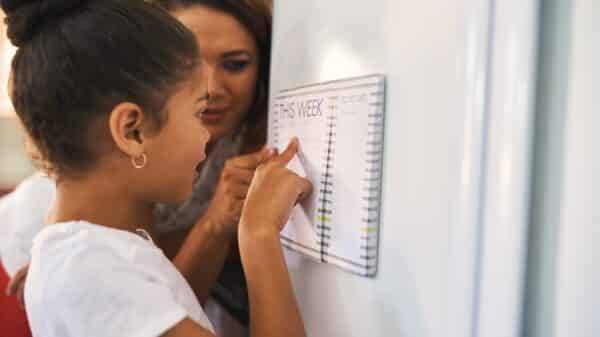Encouraging children to step beyond their comfort zones is often deemed essential for personal growth. However, this journey can be a tightrope walk for parents. Striking a balance between motivating children to challenge themselves and avoiding overwhelming them with pressure requires careful attention and understanding.
Understanding the Importance of Growth
The drive for children to engage in challenging tasks—whether it’s learning to ride a bike without training wheels or preparing for a difficult exam—plays a crucial role in their development. Yet, parents frequently face the dilemma of balancing encouragement with the risk of inducing stress. It’s vital to recognize that while striving for excellence is commendable, it should not come at the expense of a child’s mental well-being.
Open Communication: The Key to Connection
One of the most effective strategies in navigating this tricky terrain is to foster open communication with your child. Understanding their feelings about new activities can provide valuable insights into their reluctance or disinterest. Psychologist Lisa S. Larsen emphasizes the importance of asking children about their specific feelings toward a particular activity. Instead of questioning why they don’t want to participate, ask what specific aspects they find unappealing. This approach invites dialogue and encourages children to articulate their emotions.
Handling Discontent with Activities
When a child expresses discontent about an activity they initially showed interest in, it’s essential to delve deeper into their feelings. They might be experiencing discomfort with teammates, overwhelmed by the commitment required, or simply feeling unmotivated. By learning the underlying reasons, parents can collaboratively brainstorm solutions, possibly drawing from their own experiences to illustrate resilience and problem-solving.
Preparing for New Challenges
Preparation can also alleviate anxiety associated with new activities. Arranging a meeting with a coach or instructor prior to enrollment allows both parent and child to ask questions and clarify expectations. This strategy not only equips parents with the necessary knowledge but also empowers children by involving them in the decision-making process.
Sensitive Kids and Responsiveness
For parents of sensitive children, the balance becomes even more delicate. Their reactions can vary significantly based on external circumstances, such as a bad day or a parent’s tone of voice. It’s crucial to maintain an environment where children feel safe expressing their feelings without fear of judgment. Open conversations about responsibilities and expectations help cultivate emotional intelligence and resilience.
Teaching Responsibility Through Natural Consequences
When it comes to instilling responsibility, it’s important to embrace the notion of natural consequences. If a child opts not to study or practice an instrument, establish clear agreements about the expected behaviors. For instance, if lessons have been paid for in advance, explain that choices have consequences—if the effort is not put forth, future lessons may not be funded. Framing this as a mutual understanding rather than an imposition helps alleviate feelings of shame and fosters accountability.
The Power of Positive Reinforcement
Throughout this process, maintaining a positive dialogue is essential. Avoid negative reinforcement such as comparison to peers or blanket statements of inadequacy. Instead, emphasize your child’s strengths and accomplishments. By reinforcing their capabilities and providing constructive feedback, you promote a healthier outlook on challenges and failures.
Modeling Behavior and Encouragement
Parents serve as role models, and how they approach their own challenges can impart valuable lessons. Sharing personal stories of overcoming obstacles or facing responsibilities, even when feeling reluctant, can inspire children to adopt a similar mindset. Highlighting examples of perseverance not only validates their feelings but also demonstrates the importance of commitment.
Recognizing Emotional Responses
Be attuned to your child’s emotional responses when discussing responsibilities. If you notice signs of defensiveness or frustration, it’s critical to recalibrate. A genuine apology for any unintended criticism can reset the tone of the conversation and reaffirm your support for their growth.
Conclusion
Encouraging children to step out of their comfort zones involves a delicate mix of support, understanding, and constructive dialogue. By communicating openly, allowing room for emotional expression, and modeling responsible behavior, parents can guide their children toward personal growth without overwhelming them. Ultimately, the goal is to nurture a sense of confidence and resilience that will serve them well throughout their lives.
Image Source: Unsplash



































